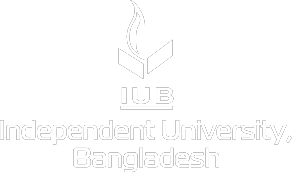BNG 201: Bangla Literature
3 credits | Prerequisites: none
Course rationale
By birth we are Bengali, and Bangla is our mother Language. We fought for our mother language, to establish it in a place of dignity/nobility. Therefore, every citizen of Bangladesh should know its root and the history of the chronological development of the Bangla Bhasha. On the contrary, we should go through the history of Bangali Sanskriti, as it is one of the richest (Sanskriti) cultures in the world. It is known to us that Bengali culture has its glorious origin and traditions. The diversity of the religious philosophy has ensured its maturity. It is very essential to say that if we want to acquaint ourselves as Bengali, it is indispensable to know four things: our language, traditional culture, social system, and our literature. The BNG-201 course has been offered for this purpose.
Course content
- Introduction to Banga, Bangali, Bengali Language, Culture and Literature (Ancient and Medieval period in brief).
- Bengal under Colonial Rule, Changes of Social and Cultural system, Nature and Features of Modern Bengali Literature (Bengali prose, Novel, Drama, Story).
- Michael Madhusudan Dutt: The real rebellion of Bengal, his contribution to Bengali Literature, Biranggona Kabbo.
- Sheshlekha Kabbo / Postmaster story by Rabindranath Tagore( Rabindranath is a creator, diversity of Creation, The Text, Aesthetics).
- Kazi Nazrul Islam: The real rebellion of Bengal, his contribution to Bengali Literature and Bengali Culture. Agnibina Kabbo.
- Pragoitihashik Story By Manik Bandopadhyay (Author, Theme, Character, Style, Aesthetics). Bonolatashen Kabbo by Jibanananda Dash (Jibanananda a man of exception as a creator, Characteristics, The Text, Aesthetics).
- Kado Nodi Kado a Novel By Syed Waliullah (Author, Theme, Character, Style, Aesthetics). Kobor Drama by Munier Chowdhury. (Author, Form, Theme, Character, Style, Aesthetics).
Course objectives
The objectives of this course are to introduce students to ancient Indian civilization very briefly, because the various races who created Indian civilization, were our predecessors, we are successors. These predecessors have cultivated our indigenous culture: they are Santal, Munda, Onrao, Kul, Bhil, koch, khashi, Hajang, Chakma, Marma, Tripura, Mro, Khumi, Pankhua, Kheyang, Boom, Lusai, Banayogi, etc. These tribal people in our surroundings are the shareholders of this culture also. We do not have much knowledge of them. On the other hand, we should unfold ancient and medieval Bengali literature with great love. In Bengal feudalism was stable for a long period from the Gupta to the Mughal period. It was that period when life was stagnant, society was dominated by religions, customs, and rituals. Under British colonial rule, a social change occurred, this change also introduced the European enlightenment of the 18th century. Modern Bengali language and literature appeared in that period with western thoughts, style, and nature. In this course, students will read the authors and analyze the various socio-political elements of those events and be able to know how to judge a literary work aesthetically.


